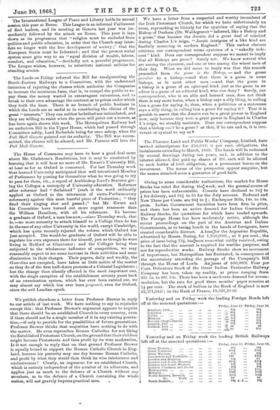We publish elsewhere a letter from Professor Brewer in reply
to our article of last week. We have nothing to say in rejoinder except this: that Professor Brewer's argument appears to require that there should be an established Church in every country, even if there should not be a single member of it in any existing genera- tion,—if only to provide for the possibilities of future generations. Professor Brewer thinks that majorities have nothing to do with -the matter. He even reproaches Roman Catholics for not liking the Established Protestant Church, on the ground that their children might become Protestants and then profit by its wise moderation. Is it not enough to reply that on that ground Professor Brewer is equally bound to support the Roman Catholic Church in Eng- land, because his posterity may one day become Roman Catholic, and profit by what they would then think its wise intolerance and exclusiveness? Clearly, an argument for an established Church, which is entirely independent of the number of its adherents, and applies just as much to the defence of a Church without any members, as to the defence of a Church containing the whole
nation, will not gravely impress practical men. .


































 Previous page
Previous page